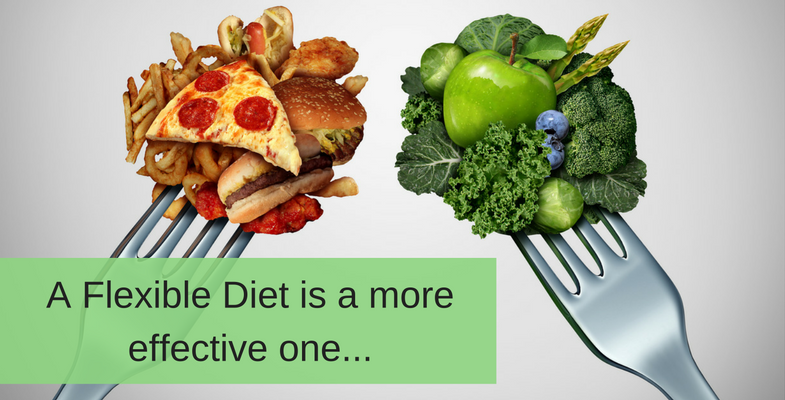You have no items in your shopping cart.
0item(s)
You have no items in your shopping cart.

To lose weight a lot of people believe that you need to be super stringent with what you eat and that certain foods are completely off the menu. Well this just isn’t the case, there is no need to eat dry chicken, fish, rice and sweet potatoes for 6 meals a day, seven days a week. Being this strict is going to take a ton of willpower, it’s likely to make you hate your diet and become bored very easily. It might also lead to an unhealthy relationship with food where eating the ‘right’ foods all the time becomes an obsession and that breaking the diet even slightly will be detrimental to their weight loss. In actual fact having a piece of cake when you go out for a coffee or having a beer when out with your mates isn’t the end of the world. A good diet is one that you enjoy and is easy to stick to. Someone could write you up a ‘perfect’ diet but if it’s going to make your life hell and result in you breaking it after just a few days then what’s the point! Flexibility is the key to long term adherence and achieving weight loss goals. One study found that flexible dieting is a less problematic strategy of weight control than a more rigid dieting protocol [1].
So what is Flexible Dieting?
Flexible dieting a form of diet which allows you to eat the foods that you like so long as you stick to your daily calorie and macro (Protein, Fat & Carbohydrates) guidelines. As with most diets however some people take this to the extreme and the majority of their diet consists of processed foods which don’t provide a lot of nutrients, yet because they are sticking to their macros they believe that their diet is okay. When flexible dieting is done properly 80-90% of the time there should still be a focus on eating wholesome, highly nutritious foods which are minimally processed. The other 10-20% of the time you can be flexible so if you would rather have some wholemeal bread rather than rice or you want some mayonnaise on a salad rather than olive oil you can do.
Flexible dieting also means you can go out for a meal or occasionally have a takeaway, you just have to alter your other meals so that you stick to your target calorie intake and macros. For example you might go out for a meal and have a large pizza, which might result in your overeating 400kcal for that day. To make up for this the next day you would just reduce the calorie content of your next couple of meals by 200kcal. You would do this by first deciding where those extra calories came from, so in this case it was the carbohydrate from the pizza base and the fat from the cheese. You would then eat less carbohydrates and fat over the next couple of meals.
Flexible Dieting vs Cheat Days/Meals
Including a weekly cheat day is another strategy which people use to allow them to still eat foods considered less healthy that they are craving. But they can only do so for one day a week. The problem with having cheat days however is that if they aren’t controlled they can easily cancel out the hard work you have put in during the rest of the week. For example if you have stuck to a calorie deficit of 300kcal per day for 6 days you will be in a calorie deficit of 1800kcal for the week. If you then have a cheat day and eat whatever you want such as cake, burgers and pizza (and the rest) you will soon find that you have reduced or cancelled out the deficit created during the previous 6 days and weight loss will be minimal at best. A cheat meal rather than a full day of cheating is a better option as you won’t be able to consume as many calories in one meal as you can during a whole day of cheating. For most people however flexible dieting is a much better option than both these approaches. Flexible dieting allows you to occasionally eat less healthy options by adjusting the rest of your meals to compensate. This allows you more freedom and if you want to go out for a meal you don’t have to wait for your cheat day/meal.
A Final Note…
Flexibility is the key when dieting, being too restrictive may lead to short term weight loss but in the long term it will be difficult to maintain and there is more chance of you breaking the diet and putting the weight back on. This isn’t the case with flexible dieting as it allows you to still have a life and enjoy your food, this makes it a lot easier to maintain and it can become part of a healthy lifestyle rather than just a diet.
References
[1] Westenhoefer et al (1994). Cognitive Control of Eating Behavior and the Disinhibition Effect. Appetite: 23(1), Pages 27–41.